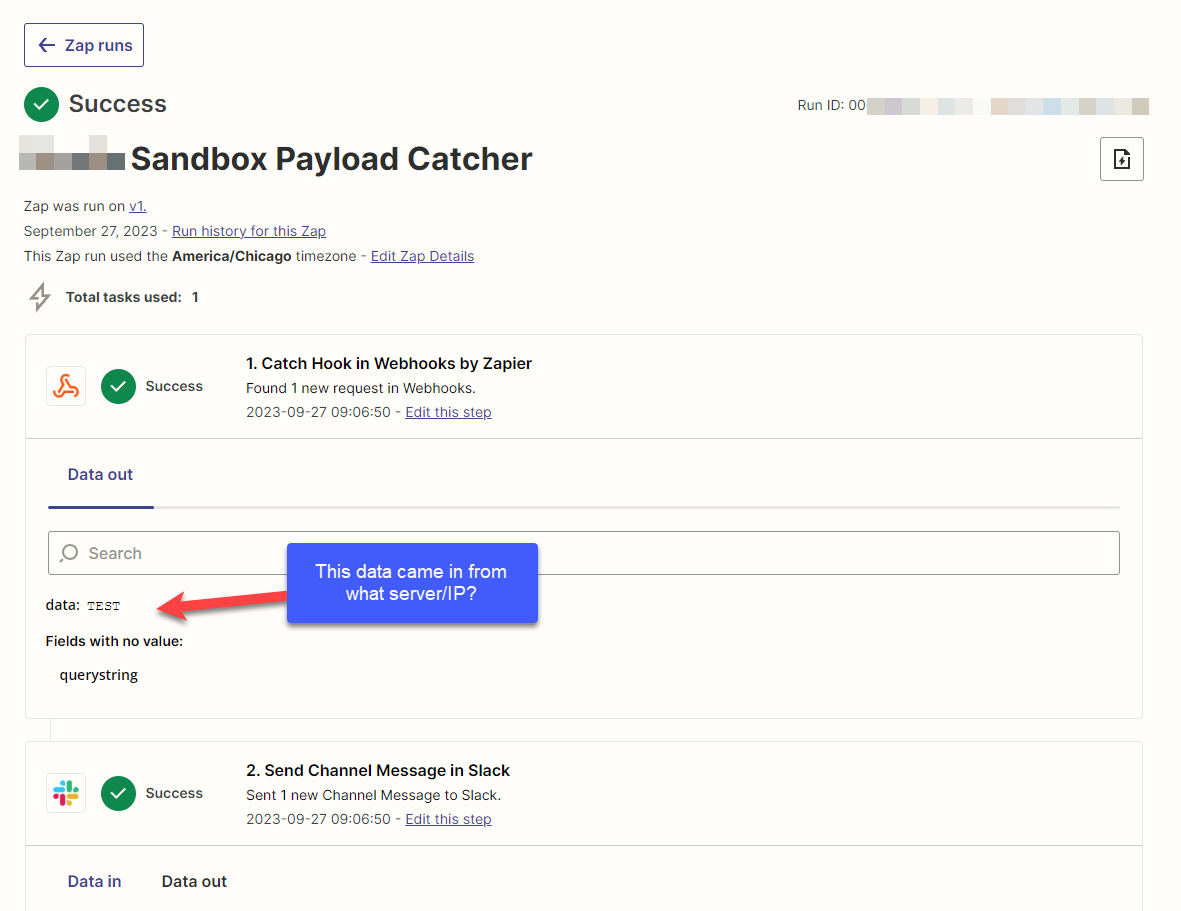Hi!
Is there a log to see which calls have been made to a webhook, like https://hooks.zapier.com/hooks/catch/11111111/xxxxxxx?
We have a Zap triggered by a call to the webhook which works 80% of the time, but there’s a 20% that is lost. The Zap history doesn’t show any errors.
It seems unlikely that the call wasn’t made, so looking into a log would be helpful.
Thanks!





